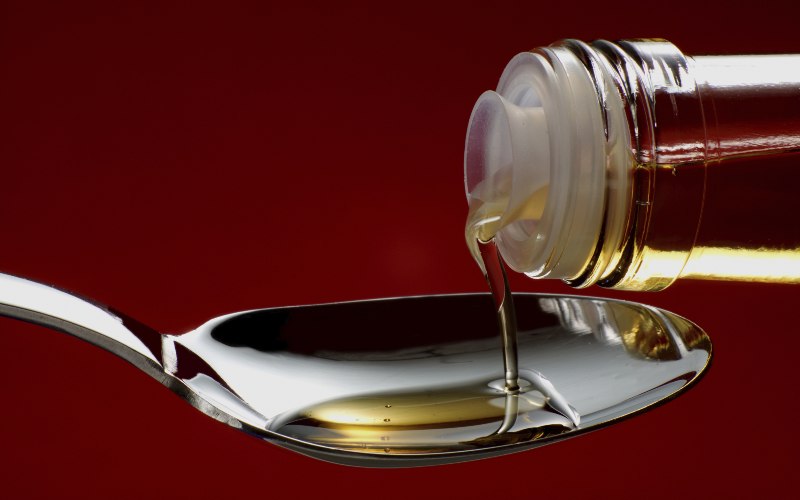Is extra virgin olive oil really better? A nutritionist weighs in

Is extra virgin olive oil truly better than regular or “pure” olive oil? Does its higher price reflect real nutritional benefits, or is it just marketing?
For years, health gurus, food bloggers, and Mediterranean diet enthusiasts have praised extra virgin olive oil (EVOO) as the holy grail of healthy fats.
More To Read
- What your mouth is telling you: Saliva’s hidden clues to your health
- Cooking smoke linked to 26,000 deaths in Kenya every year - report
- Beyond chlorine: Why your eyes turn red after swimming
- Maize, sugar and cooking oil prices to rise in June as spinach, cabbage to drop - CBK
- Study links consumption of ultra-processed food to accelerated ageing
- New Bill proposes to give government powers to dictate commodity prices
From salad dressings to sautéed vegetables, this golden-green oil has earned a reputation not only as a kitchen staple but also as a nutritional powerhouse.
But as demand for olive oil grows in Kenya, particularly among urban residents seeking heart-healthy cooking options, confusion remains.
Is extra virgin olive oil truly better than regular or “pure” olive oil? Does its higher price reflect real nutritional benefits, or is it just marketing?
To get clarity, The Eastleigh Voice spoke to Wincate Wangari, a registered nutritionist based in Nairobi, who broke down the facts behind the oil, its labels, and what Kenyans should look for.
The olive oil hierarchy: What is the difference?
Wangari explained that not all olive oils are the same. The difference lies in how the oil is processed, which affects flavour and nutrition.
“Extra virgin olive oil is the least processed form,” Wangari explained. “It’s extracted by cold pressing without heat or chemicals, preserving antioxidants, polyphenols, and vitamins like E and K.”
This method keeps the oil close to its natural state, giving EVOO its fruity aroma, peppery finish, and deeper green colour.
On the other hand, regular or “pure” olive oil is usually a blend of virgin and refined oils, processed with heat or chemicals to neutralise flavour and acidity.
“Refining removes most antioxidants,” she added. “It’s better than seed oils like sunflower or canola in fatty acid profile, but it loses many protective compounds in EVOO.”
Health benefits: What the science says
Studies link EVOO, especially within the Mediterranean diet, to reduced risks of heart disease, stroke, inflammation, diabetes, and some cancers.
These benefits come mainly from monounsaturated fats (oleic acid), which lower bad cholesterol and maintain good cholesterol, plus antioxidants fighting oxidative stress.
“These compounds reduce inflammation, protect the heart, improve blood vessels, and may support brain health,” Wangari explained.
Regular olive oil has monounsaturated fats too, but far fewer antioxidants.
What about cooking?
There is a long-standing myth that EVOO shouldn’t be used for cooking due to a lower smoke point. Wangari says this is overstated.
“In reality, extra virgin olive oil is actually very stable under typical cooking temperatures, largely because of its antioxidant content," she said.
Unlike polyunsaturated seed oils, EVOO’s monounsaturated fats and polyphenols make it less prone to oxidation and harmful breakdown.
A 2018 study confirmed EVOO outperforms refined vegetable oils when heated, thanks to its polyphenol content.
But still, there is a limit.
“If you’re deep-frying or cooking at very high temperatures, above 200 degrees, then regular olive oil, which has been refined, might be more suitable and cost-effective,” Wangari observed.
For everyday cooking, light frying, sautéing, and roasting, EVOO is safe, holds up well, and adds flavour.
“It holds up well under moderate heat, and you still get the full benefit of the antioxidants and healthy fats,” she advised.
Cost and value in Kenya
While deep-frying your bhajias in EVOO might not be the most economical choice, using it for your sukuma wiki, roast chicken, or salad makes both nutritional and culinary sense. In Kenyan supermarkets, a litre of EVOO ranges from Sh1,500 to Sh3,500, while regular olive oil sells for Sh900 to Sh1,200.
So, is the extra virgin price tag justified?
“For nutritional benefits, salads, drizzling and light cooking, it’s worth it. If you cook large quantities and price is a concern, regular olive oil is better than seed oils high in omega-6,” Wangari advised.
How do you choose the oil?
Not all extra virgin olive oils on the shelf are truly what they claim to be. Adulteration, blending EVOO with cheaper oils, is a known problem worldwide, especially with imported brands.
Wangari shares a few tips for Kenyan consumers:
- Check labels for “100 per cent Extra Virgin Olive Oil", not just 'olive oil'.
- Prefer dark glass bottles to protect from light damage.
- Look for origin countries like Italy, Spain, Greece, Tunisia, and harvest or bottling dates.
- Smell for grassy or fruity notes and a peppery, slightly bitter aftertaste.
- Store away from sunlight, heat, and air; keep away from the stove and use within 3–6 months after opening.
“You can also store it properly, away from sunlight, heat, and air exposure. Don’t keep it near the stove,” Wangari advised. “And try to finish it within 3-6 months of opening.”
Nutritionally, EVOO wins for antioxidants, heart health, and kitchen versatility. But regular olive oil is still healthier than most vegetable oils.
"Don’t just follow labels, ask questions, learn how to read ingredient lists, and know what you’re putting on your plate,” she concluded.
Top Stories Today












































